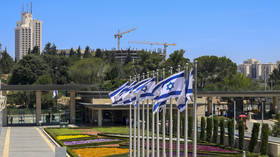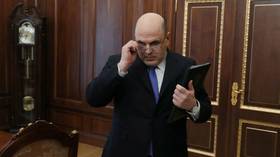Price too big to pay? Sudan rejects tying its removal from US terrorism list to fixing relations with Israel

If being dropped the from the US list of state sponsors of terrorism comes at the cost of normalizing ties with Israel, then the price tag might be too much for Arabic-speaking Sudan, which rejected linking the two issues.
Sudan’s Prime Minister Abdalla Hamdok told the media earlier on Saturday he made it clear to US Secretary of State Mike Pompeo that the removal from Washington’s notorious list of terrorism supporters and the warming of relations with the Israel need to be tackled separately.
“This topic [ties to Israel] needs a deep discussion of the society,” he was quoted as saying by Reuters. The African country has remained on the State Department’s list since 1993, now joined only by Iran, North Korea, and Syria.
The designation exposes the four countries to sweeping US sanctions that involve a ban on arms exports, asset freezes as well as prohibitions on financial and commercial transactions with the outside world.
Back in 2016, when it severed diplomatic ties with Iran, Washington began easing sanctions against Sudan; that pattern was fuelled by the 2019 coup that toppled longtime President Omar Hassan al-Bashir, who the US accused of siding with Hezbollah and Palestinian militias.
Sudan is thought to have been in talks over its removal from the terrorism list for quite some time. Now, the US reportedly putting forward the new demand could potentially hinder that endeavor. However, the Trump administration is yet to officially confirm whether linking the two issues has indeed been the case.
The story comes as US diplomats muse that another Arab country might follow the lead of Egypt, Jordan, UAE and Bahrain that have all normalized ties with Israel. Speaking to the Saudi-owned news channel Al Arabiya, US ambassador to the UN Kelly Craft said “our plan is to bring in more countries; we will have more being announced very soon.”
She made no specific mention of any country but signalled Saudi Arabia as one of the candidates.
Meanwhile, there has been speculation that Sudan might be discussing the issue as well. Back in August, Haidar Badawi Sadiq, who was a spokesman for Sudan's Foreign Ministry at the time, said his country is floating the idea of inking a peace deal with Israel. The surprise remark left Sudan’s leadership “astonished” and cost the official his job.
Sudan’s capital Khartoum was actually the venue where the Arab League announced its famous “three no’s” resolution, which opposed peace, negotiations and the recognition of Israel. Adopted after the 1967 Six-Day War, the policy was widely recognized among Arab states until Egypt and Jordan established formal diplomatic relations with Israel in the 1980s and 1990s.
Also on rt.com UAE’s move to normalize ties with Israel ‘has broken psychological barrier’ – FMLike this story? Share it with a friend!














